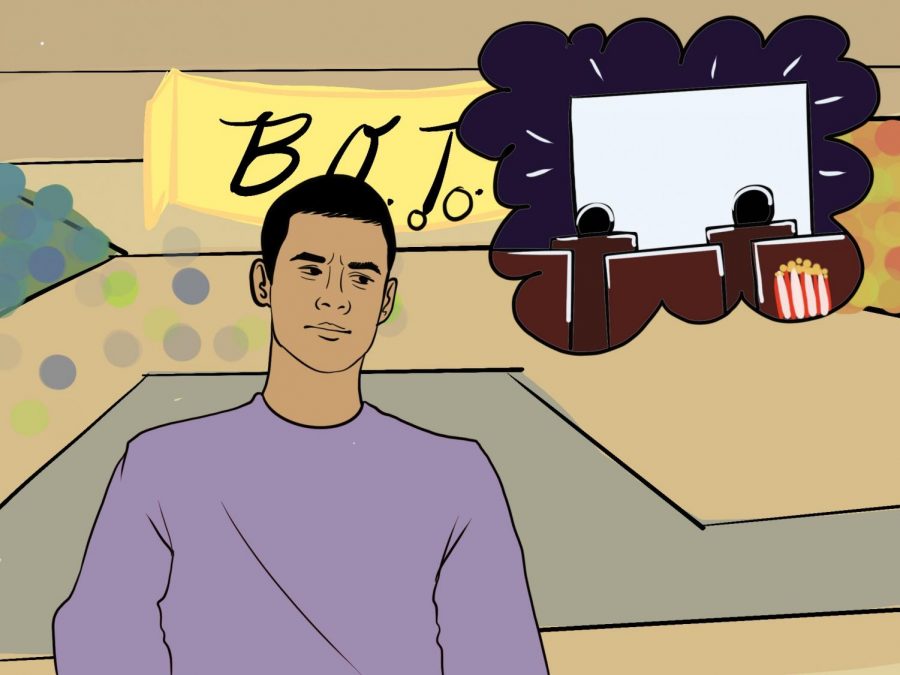OPINION: How SCHS events can be altered and improved for all to enjoy
Some students don’t feel that school events are very fun.
Tedium leads to boredom. The same goes for school events: after attending them once or twice, both the expectation and event itself begins to feel repetitive.
On average, school events cost a student from anywhere between $5-$100 to attend. At each of these events, students can expect a packed room and screaming teenagers. BOTC, for example, is one of the biggest events for SCHS students. Classes compete to take first place amongst all four classes. Though it could be a great opportunity to spend time with friends, BOTC is very repetitive since the school reuses the same events to determine the winner. With no real change, many walk out regretful and wishing that they instead went with their friends to spend the day somewhere new and adventurous.
Some school events can be great, but the circumstances leading up to the event may cause unprecedented stress. Students have their equal share of homework and studying, and events may distract them in unexpected ways, such as coordinating who they want to go with or what they want to wear. Some students may even sacrifice completing homework or schoolwork to prepare and thus sacrifice their grades to participate in the event, such as BOTC or a rally.
Not to say that every single student experiences stress preparing for an event, and in fact, many view it as motivation for the future. They don’t mind paying admission and being in a full-packed, sweaty gym as long as they have their friends beside them. To some, they don’t care where they are as long as they have their friends and family with them. This sounds good and all, except when it competes with students’ education and studying.
School activities often conflict with a students’ main priority, which should be to get good grades and hopefully get into a good college. School events don’t necessarily benefit anybody but the small number of students who have “school spirit” and the school, which pockets a percentage of the money. Thus, students could easily spend their time more effectively either studying or exploring.
Weekends are a great time to spend with friends and relax. Students have the opportunity to go out to different places with their friends without school supervision. The endless realm of places to visit provides potentially new memories and experiences. When students are spending their weekdays preparing for school events, they have to forfeit their weekends to catch up on school work.
With the ongoing COVID-19 quarantine underway, it could also serve as a valuable time to improve school events that will take place in the future. By releasing surveys that would allow students to give suggestions and ideas for the next school year, it would not only excite students to return to school but also relieve some of their boredom from staying at home all day and taking online courses.
Another endeavour to this situation would be to attend other schools events once school resumes and mentally note likeable aspects of the event that our school could likewise integrate. By bringing new ideas to the table, it would not only elevate the event itself as a whole, but get more students involved. For example, there are students who have been to Wilcox’s Fantastics, but never to SCHS’s BOTC. By asking what they like about it opens up the conversation to those students and can elicit a bigger response from the different classes who share similar interests.
Beginning discussions regarding school events during this period of shelter-in-place will save time in the future and will make it so no students have to worry about unnecessary issues, like concepts, colors or price. These problems – that can be handled sooner – will hinder a student’s time once school resumes. During the school year, students are submerged by schoolwork, sports and clubs. Realistically, only a handful of students actually take the surveys provided by the student council. By taking this “time off” to reach out to the student body, more responses may be submitted as everyone is glued to their devices, and previous “introverts” at school may join the conversation.
With all eyes on what is going to happen regarding the senior class’s prom and graduation, many are disappointed to have the events stripped or modified. Students of the other classes witnessing this also can feel bad for the seniors since they are key memories of many students that they are going to miss. The unprecedented situation may lead to the realization of many students of what school events mean and bolster attendance in the future, especially with BOTC being cancelled. With this in mind, it is a perfect time to try to modify events and appeal to the new audience of attendees by garnering new ideas.
If schools made the effort to change their events more, they could bolster not only attendance but also inclusion, making the student body feel as a whole since many feel past events only cater to a certain demographic. The key to bringing everyone together is to coordinate something unforgettable that everyone can reminisce about in the future.


